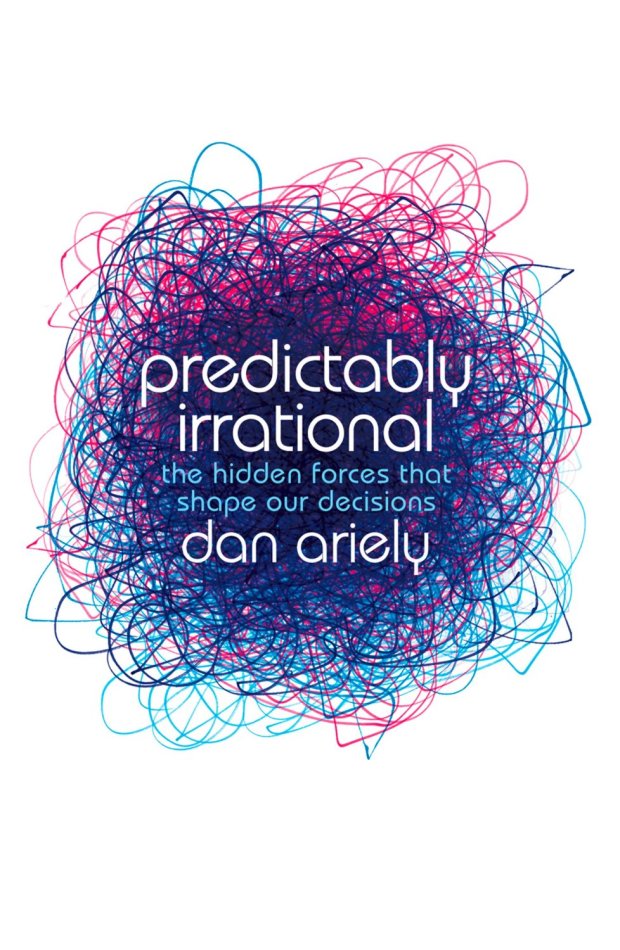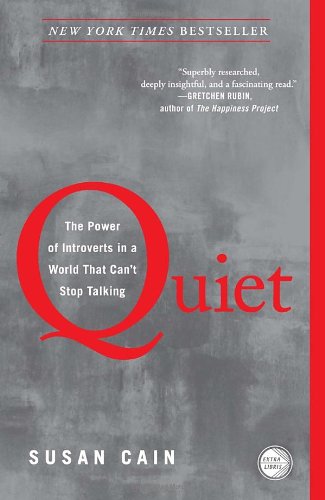I just finished reading The Price of Inequality – How Today’s Divided Society Endangers Our Future – by Joseph E. Stiglitz. This book was a selected reading at the Houston Non Fiction Book Club that I am part of.
Below are key excerpts from the book that I found particularly insightful:
1- “But fully addressing a problem of the magnitude, depth, and duration of inequality in the United States will take comprehensive actions, of a kind that will require bipartisan support. Traditionally persons in both parties have understood that a nation divided cannot stand—and the divisions today ire greater than they have been in generations, threatening basic values, including our conception of ourselves as a land of opportunity Will we once again pull back from the brink? This book is written in the hope that we can and that we will—if only we grasp what has been happening to our economy and our society.”
2- “As we talked, it was clear to me that while specific grievances varied from country to country and, in particular, that the political grievances in the Middle East were very different from those in the West, there were some shared themes. There was a common understanding that in many ways the economic and political system had failed and that both were fundamentally unfair.”
3- “Three themes resonated around the world: that markets weren’t working the way they were supposed to, for they were obviously neither efficient nor stable; that the political system hadn’t corrected the market failures; and that the economic and political systems are fundamentally unfair. While this book focuses on the excessive inequality that marks the United States and some other advanced industrial countries today it explains how the three themes are intimately interlinked: the inequality is cause and consequence of the failure of the political system, and it contributes to the instability of our economic system, which in turn contributes to increased inequality—a vicious downward spiral into which we have descended, and from which we can emerge only through concerted policies that I describe below.”
4- “This book is about why our economic system is failing for most Americans, why inequality is growing to the extent it is, and what the consequences are. The underlying thesis is that we are paying a high price for our inequality—an economic system that is less stable and less efficient, with less growth. and a democracy that has been put into peril. But even more is at stake: as our economic system is seen to fail for most citizens, and as our political system seems to be captured by moneyed interests, confidence in our democracy and in our market economy will erode along with our global influence. As the reality sinks in that we are no longer a country of opportunity and that even our long-vaunted rule of law and system of justice have been compromised, even our sense of national identity may be put into jeopardy.”
5- “Given a political system that is so sensitive to moneyed interests, growing economic inequality leads to a growing imbalance of political power, a vicious nexus between politics and economics. And the two together shape, and are shaped by societal forces—social mores and institutions—that help reinforce this growing inequality.”
6- “The journalist Jonathan Chait has drawn attention to two of the most telling statistics from the Economic Mobility Project and research from the Economic Policy Institute Poor kids who succeed academically are less likely to graduate from college than richer kids who do worse in school Even if they graduate from college, the children of the poor are still worse-off than low-achieving children of the rich, None of this comes as a surprise: education is one of the keys to success; at the top, the country gives its elite an education that is the best in the world. But the average American gets just an average education—and in mathematics, key to success in many areas of modern life, it’s subpar.”
7- “Our political system has increasingly been working in ways that increase the inequality of outcomes and reduce equality of opportunity This should not come as a surprise: we have a political system that gives inordinate power to those t the top, and they have used that power not only to limit the extent of redistribution but also to shape the rules of the game in their favor, and to extract from the public what can only be called large “gifts.” Economists have a name for these activities: they call them rent seeking, getting income not as a reward to creating wealth but by grabbing a larger share of the wealth that would otherwise have been produced without their effort.”
8- “Three factors contributed to this increased monopolization of markets. First, there was a battle over ideas about the role that government should take in ensuring competition.Chicago school economists (like Milton Friedman and George Stigler) who believe in free and unfettered markets argued that markets are naturally competitive^^ and that seemingly anti-competitive practices really enhance efficiency A massive program to “educate” people, and especially judges, regarding these new doctrines of law and economics, partly sponsored by right-wing foundations like ^he Olin Foundation, was successful…A second factor giving rise to increased monopoly is related to changes in our economy. The creation of monopoly power was easier in some of the new growth industries. Many of these sectors were marked by what are called network externalities.”
9- “In many societies, those at the bottom consist disproportionately of groups that suffer, in one way or another, from discrimination. The extent of such discrimination is a matter of societal norms. We’ll see how changes in social norms—concerning, for instance, what is fair compensation—and in institutions, like unions, have helped shape America’s distribution of income and wealth. But these social norms and institutions, like markets, don’t exist in a vacuum: they too are shaped, in part, by the 1 percent.”
10- “I have emphasized that the problems concern globalization as it has been managed. Countries in Asia benefited enormously through export-led growth, and some (such as China) took measures to ensure that significant portions of that increased output went to the poor, some went to provide for public education, and much was reinvested in the economy to provide more jobs. In other countries, there have been big losers as well as winners—poor corn farmers in Mexico have seen their incomes decline as subsidized American corn drives down prices on world markets.”
11- “What is striking about the United States is that while the level of inequality generated by the market—a market shaped and distorted by politics and rent seeking—is higher than in other advanced industrial countries, it does less to temper this inequality through tax and expenditure programs. And as the market-generated inequality has increased, our government has done less and less.”
12- “Government today plays a double role in our current inequality: it is partly responsible for the inequality in before-tax distribution of income, and it has taken a diminished role in “correcting” this inequality through progressive tax and expenditure policies.”
13- “The central thesis of this chapter and the preceding one is also that inequality is not just the result of the forces of nature, of abstract market forces. We might like the speed of light to be faster, but there is nothing we can do about it. But inequality is, to a very large extent, the result of government policies that shape and direct the forces of technology and markets and broader societal forces. There is in this a note of both hope and despair: hope because it means that this inequality is not inevitable, and that by changing policies we can achieve a more efficient and a more egalitarian society; despair because the political processes that shape these policies are so hard to change.”
14- “We have seen how inequality gives rise to instability, as a suit of both the deregulatory policies that are enacted and the policies that are typically adopted in response to the deficiencies in aggregate demand. Neither is a necessary consequence of inequality: if our democracy worked better, it might have resisted the political demand for deregulation and might lave responded to the weaknesses in aggregate demand in ways that enhanced sustainable growth rather than creating a bubble.”
15- “Of all the costs imposed on our society by the top 1 percent, perhaps the greatest is this: the erosion of our sense of identity in which fair play, equality of opportunity, and a sense of community are so important. America has long prided itself on getting ahead, but the statistics today, as we’ve seen, suggest otherwise: the chances that a poor or even a middle-class American will make it to the top in America are smaller than in many countries of Europe. And as inequality itself creates a weaker economy, the chance can only grow slimmer.”
16- “Another vicious circle has been set in play: political rules of the game have not only directly benefited those at the top, ensuring that they have a disproportionate voice, but have also created a political process that indirectly gives them even more power. We have identified a whole series of forces contributing to the disillusionment with politics and distrust of the political system. The yawning divide in our society has made it difficult to reach compromise, contributing to our political gridlock.”
17- “As one of the world’s experts on globalization, the Harvard University professor Dani Rodrikhas pointed out, one cannot simultaneously have democracy, national self-determination, and full and unfettered globalization.”
18- “We are often told that this is the way it has to be, that globalization gives us no choice. This fatalism, v which serves those benefiting from the current system, obscures reality: the predicament is a choice. The governments of our democracies have chosen an economic framework f for globalization that has actually tied the hands of those democracies. The 1 percent was always worried that democracies would be tempted to enact “excessively” progressive taxation under the influence, say, of a populist leader. Now citizens are told they can’t do so, not if they want to partake of globalization. In short, globalization, as it’s been managed, is narrowing the choices facing our democracies, making it more difficult for them to undertake the tax and expenditure policies that are necessary if we are to create societies with more equality and more opportunity But tying the hands of our democracies is exactly what those at the top wanted: we can have a democracy with one person one vote, and still get outcomes that are more in accord with what we might expect in a system with one dollar one vote.”
19- “Of course, not every government effort is successful, or as successful as its advocates would have liked. Indeed, when the government undertakes research (or supports new private sector ventures), there should be some failures. A lack of failures means you are not taking enough risks. Success occurs when the returns from those projects that succeed are more than enough to offset the losses on those that fail And the evidence in the case of government research ventures is unambiguously and overwhelmingly that the returns from government investments in technology on average have been very, very high—^just think about the Internet, the Human Genome Project, jet airplanes, the browser, the telegraph, the increases in productivity in agriculture in the nineteenth century, that provided the basis for the United States’ moving from farming to manufacturing.”
20- “That there are successes and failures in both the public and the private sector is clear. And yet many on the right seem to think only the government can fail.”
21- “The powerful try to frame the discussion in a way that benefits their interests, realizing that, in a democracy they cannot imply impose their rule on others. In one way or another, they have to “co-opt” the rest of society to advance their agenda. Here again the wealthy have an advantage. Perceptions and beliefs are malleable. This chapter has shown that the wealthy have the instruments, resources, and incentives to shape beliefs in ways that serve their interests. They don’t always win—but it’s far from an even battle. We’ve seen how the powerful manipulate public perception by appeals to fairness and efficiency, while the real outcomes benefit only them.”
22- “We can take advantage of the extent to which different taxes and expenditures stimulate the economy, spending more on programs that have large multipliers (where each dollar of )ending generates more overall GDP) and less on programs that have small multipliers; raising taxes from sources with low multipliers while cutting taxes on those with high multipliers.”
23- “The lack of faith in democratic accountability on the part of those who argue for independent central banks should be deeply troubling. Where does one draw the line in turning over the central responsibilities of government to independent authorities. The same arguments about politicization could be applied to tax and budgetary policies. I suspect some in the financial market would be content to turn those responsibilities over to “technical experts.” But here’s the hidden agenda: the financial markets would not be content with just any set of technical experts. They prefer, as we have seen, “experts” who shared their views—views that support their interests and ideology. The Federal Reserve and its chairmen like to end that they are above politics. It is convenient not to be accountable, to be independent. hey see themselves as simply wise men and women, public servants, helping to steer the complex ship of the economy. But if there was any doubt of the political nature of the Fed and its chairmen, it should have been resolved by observing the seemingly shifting positions of the central bank over the past twenty years.”
24- “Inflation targeting was based on three questionable hypotheses. The first is that inflation is the supreme evil; the second is that maintaining low and stable inflation was necessary and almost sufficient for maintaining a high and stable real growth rate; the third is that all would benefit from low inflation.”
25- “While the advocates of these policies may claim that they the best policies for all, this is not the case. There is no single, best policy. As I have stressed in this book, policies lave distributive effects, so there are trade-offs between the interests of bondholders and debtors, young and old, financial sectors and other sectors, and so on. I have also stressed, however, that there are alternative policies that would have led to better overall economic performance—especially so if we judge economic performance by what is happening to the well-being of most citizens. But if these alternatives are to be implemented, the institutional arrangements through which the decisions are made will have to change. We cannot have a monetary system that is run by people whose thinking is captured by the bankers and that is effectively run for the benefit of the those at the top.”
26- “The Economic Reform Agenda…Curbing the financial sector…Stronger and more effectively enforced competition laws…Improving corporate Governance-especially to limit the power of the CEOs to divert so much of corporate resources for their own benefit…End government giveaways—whether in the disposition of public assets or in procurement…End corporate welfare—including hidden subsidies…Legal reform—democratizing, access to justice, and diminishing the arms race…Create a more progressive income and corporate tax system—with fewer loopholes…Create a more effective and effectively enforced estate tax system to prevent the creation of a new oligarchy…Improving access to education…Helping ordinary Americans save…Health care for all…Strengthening other social protection programs…Tempering globalization: creating a more even playing field and ending the race to the bottom…A fiscal policy to maintain full employment—with equality…A monetary policy—and monetary institutions—to maintain full employment…Correcting trade imbalances…Active labor market policies and improved social protection…Supporting workers’ and citizens’ collective action…Affirmative action to eliminate the legacy of discrimination…A growth agenda, based on public investment.”
Regards,
Omar Halabieh

The Price of Inequality








